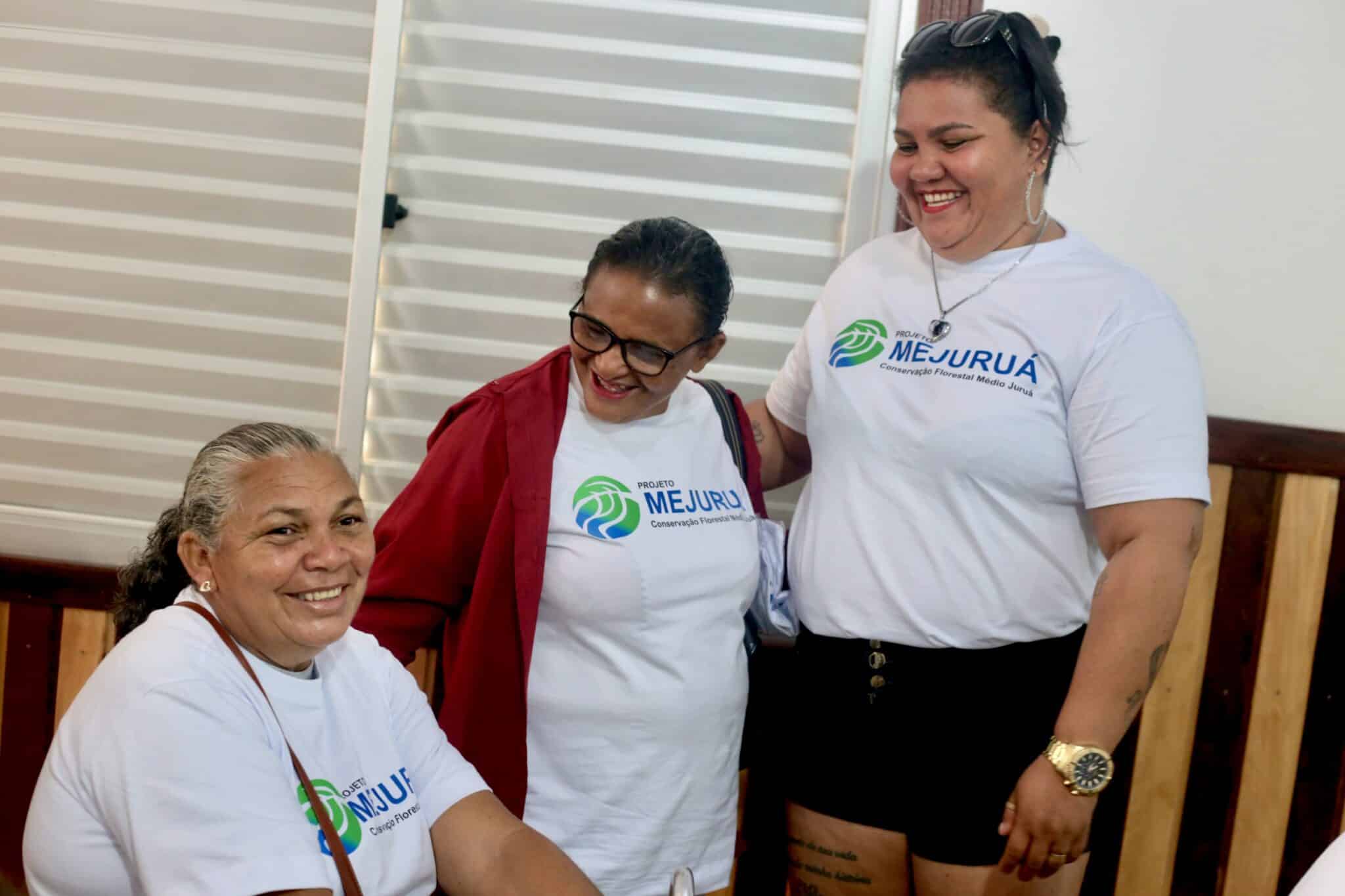Mejuruá Project celebrates land tenure regularization for 95 families

At the Municipal Auditorium of Carauari, what unfolded was much more than a formal institutional ceremony. In this small town in the heart of Amazonas, a transformative moment took place in the lives of dozens of families from the Carauari region. Gathered together, they celebrated a collective milestone: the official recognition of their right to remain on land that now offers real conditions for subsistence and dignity. Some of these families had long led nomadic lives, moving between forest areas and nearby urban centers; others had migrated to the city in search of opportunities that never came, ultimately falling into poverty. Now, with the official demarcation of their land plots, these residents finally have the security of a space to farm, fish, and engage in extractivist activities.
In addition to the allocation of land by BR Arbo as a means of subsistence, the Mejuruá Project has also made it possible to develop extractivist activities in a collectively managed area. The goal is to revive knowledge and practices that had been lost over time due to the instability of nomadic life and extended periods in urban centers.
From the beginning, the Mejuruá Project envisioned the creation of “Forest Angels,” an initiative aimed at anchoring families to the land by offering concrete conditions for a dignified life—for both those returning and those who had remained. The initiative’s strategy focuses on occupying riverbanks, which are the areas most vulnerable to deforestation.
No town in the Médio Juruá region has road access. Transportation is only possible by river, and in Carauari’s specific case, also by air. This geographical limitation means that deforestation in the region occurs almost exclusively along riverbanks.
For this reason, the Mejuruá Project adopted a strategy to settle families in these environmentally vulnerable areas, granting individual property rights for domestic and productive use—such as homes and small farms—and designating collective areas for extractivist activities. All of this is supported by basic infrastructure: access to clean water, electricity, and internet connectivity.
This land tenure policy is accompanied by the implementation of essential infrastructure, ensuring better living conditions and reinforcing residents’ active role in environmental protection.
From now on, internet access will serve not only personal use but also as a tool for environmental monitoring and reporting of potential environmental crimes, turning residents into active guardians of their territory.
“Before, we had no proof that we owned land; we couldn’t do anything—couldn’t plant, couldn’t sell, nothing. The land belonged to the company. Now, I feel very happy to have this document in hand. I hope the project continues. It’s a good proposal, bringing us light, energy, and water. May it bring us even more opportunities for a better life,” says Mr. Edmilson Vale dos Santos, one of the beneficiaries.
This achievement was born of listening and dialogue. Since 2023, when the first meetings were held between the BR Arbo team—managers of the Mejuruá Project—the Association of Residents of Baixo Riozinho (ASMOBRI), and the residents themselves, it became clear that the challenge went far beyond bureaucratic land regularization. At stake was the chance to give families a real opportunity to settle on the land, leave behind the instability of urban life, and resume traditional ways of producing and living that had been slowly fading away.
Every signature on the land regularization terms is the result of detailed, people-centered work. Project technicians, in partnership with ASMOBRI leadership, visited each property, engaged with residents, listened to their stories, understood local dynamics, and respected the way of life and worldview of Carauari’s citizens.
In 2024, this relationship of trust was further consolidated through the signing of the Extractivist Partnership Agreement, an instrument that guarantees not only sustainable access to forest resources but also long-term legal security and environmental protection.
What is happening in Riozinho reflects the social character of the Mejuruá Project
For the Mejuruá Project, land tenure regularization is one of the most effective ways to combat illegal deforestation, strengthen local economies, and reduce land-related conflicts.
What took place in Riozinho represents a model based on territorial reconstruction through the resettlement and anchoring of families, guided by a logic that values people’s direct relationship with the forest. This relationship is built not only through present-day contact but also through deep-rooted family and cultural ties to the region—ties that are now strengthened by land security and incentives for environmental stewardship.